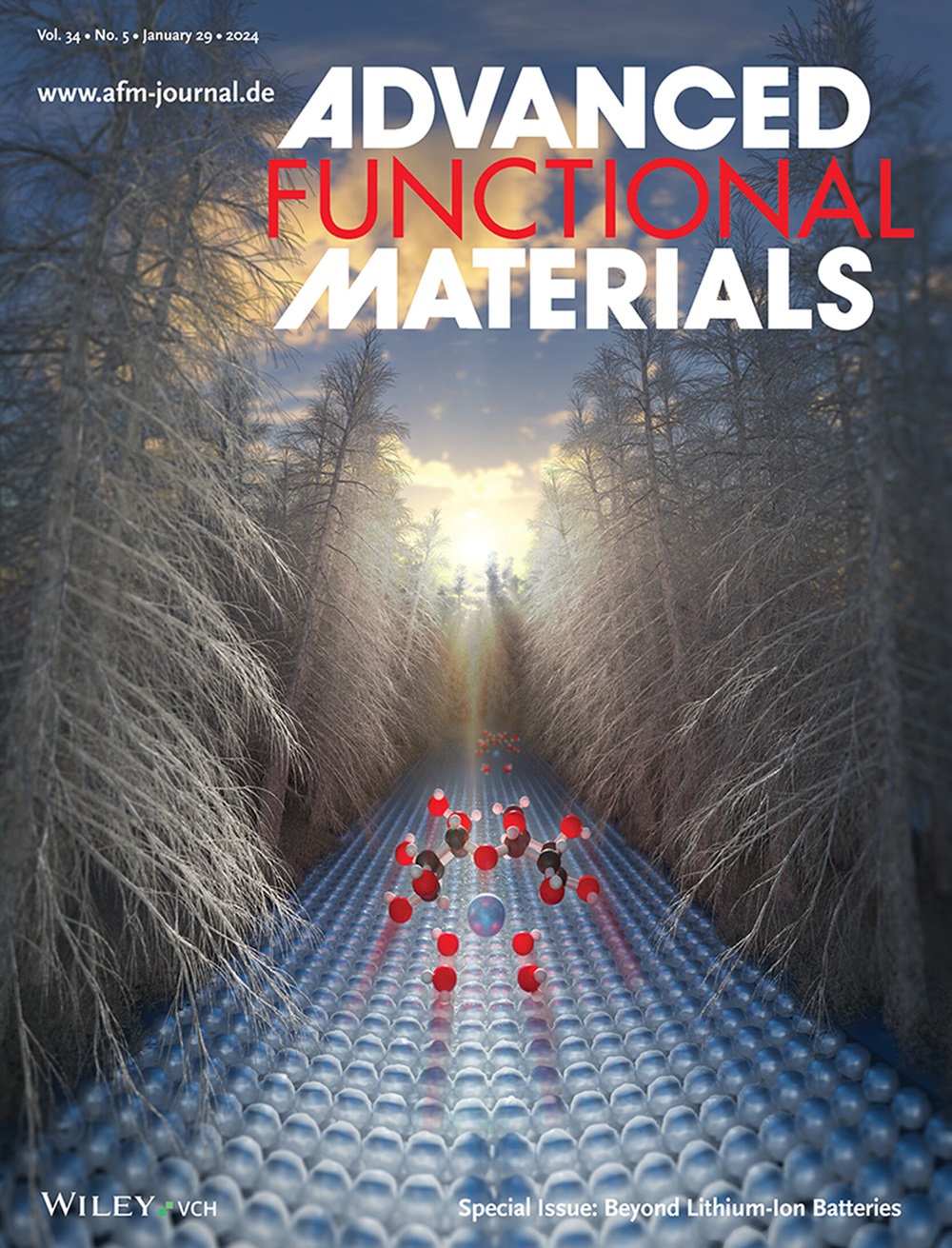Aqu-Thermoplastics: Recycling Plastics with Water
IF 18.5
1区 材料科学
Q1 CHEMISTRY, MULTIDISCIPLINARY
引用次数: 0
Abstract
Recycling of real waste plastics with diverse composition is extremely difficult. Herein, an eco-friendly and easy-to-operate strategy is demonstrated to facilitate the recycling of plastic composites and mixtures by using only water. An aqu-thermoplastic bioplastic (CPp-TA) is constructed with switchable water solubility and excellent thermoplastic property from natural cellulose. CPp-TA consisted of the cellulose main chain (C) and two functional groups, internal-plasticizing group (Pp) and switchable group (TA). It not only has outstanding thermo-plastic formability, water resistance, and mechanical property to satisfy the daily needs, but also can be easily recycled with water by switching to the water-soluble state. CPp-TA can processed into various high-performance plastic parts, fibers, heat-sealing packaging, transparent cups, paper-plastic composites, and aluminum-plastic composites by conventional thermoplastic processing methods. The obtained CPp-TA/Al/paper composite exhibits better barrier performance than the famous Tetra Pak with a complex recycling process, and can be easily separated into CPp-TA, Al foil, and paper by using basic aqueous solution to trigger the water solubility of CPp-TA. Similarly, CPp-TA can be effectively separated from plastic mixtures. The recovery yield achieves to 100%. The revolutionary aqu-thermoplastic materials and water-recycling strategy markedly reduce the recycling difficulty of intricate plastics and promote the sustainable development.

水热塑料:用水回收塑料
回收利用成分各异的实际废塑料极为困难。本文展示了一种环保且易于操作的策略,只需用水即可促进塑料复合材料和混合物的回收利用。一种水热塑性生物塑料(CPp-TA)由天然纤维素制成,具有可切换的水溶性和优异的热塑性。CPp-TA 由纤维素主链(C)和两个官能团(内增塑基团(Pp)和可切换基团(TA))组成。它不仅具有出色的热塑成型性、耐水性和机械性能,可满足日常需求,而且通过转换为水溶性状态,可以很容易地用水回收利用。CPp-TA 可通过常规热塑性加工方法加工成各种高性能塑料零件、纤维、热封包装、透明杯、纸塑复合材料和铝塑复合材料。与回收过程复杂的著名利乐包相比,CPp-TA/铝/纸复合材料具有更好的阻隔性能,而且通过使用碱性水溶液激发 CPp-TA 的水溶性,可以很容易地将其分离成 CPp-TA、铝箔和纸。同样,CPp-TA 也能从塑料混合物中有效分离出来。回收率达到 100%。革命性的水热塑性材料和水回收策略显著降低了复杂塑料的回收难度,促进了可持续发展。
本文章由计算机程序翻译,如有差异,请以英文原文为准。
求助全文
约1分钟内获得全文
求助全文
来源期刊

Advanced Functional Materials
工程技术-材料科学:综合
CiteScore
29.50
自引率
4.20%
发文量
2086
审稿时长
2.1 months
期刊介绍:
Firmly established as a top-tier materials science journal, Advanced Functional Materials reports breakthrough research in all aspects of materials science, including nanotechnology, chemistry, physics, and biology every week.
Advanced Functional Materials is known for its rapid and fair peer review, quality content, and high impact, making it the first choice of the international materials science community.
 求助内容:
求助内容: 应助结果提醒方式:
应助结果提醒方式:


